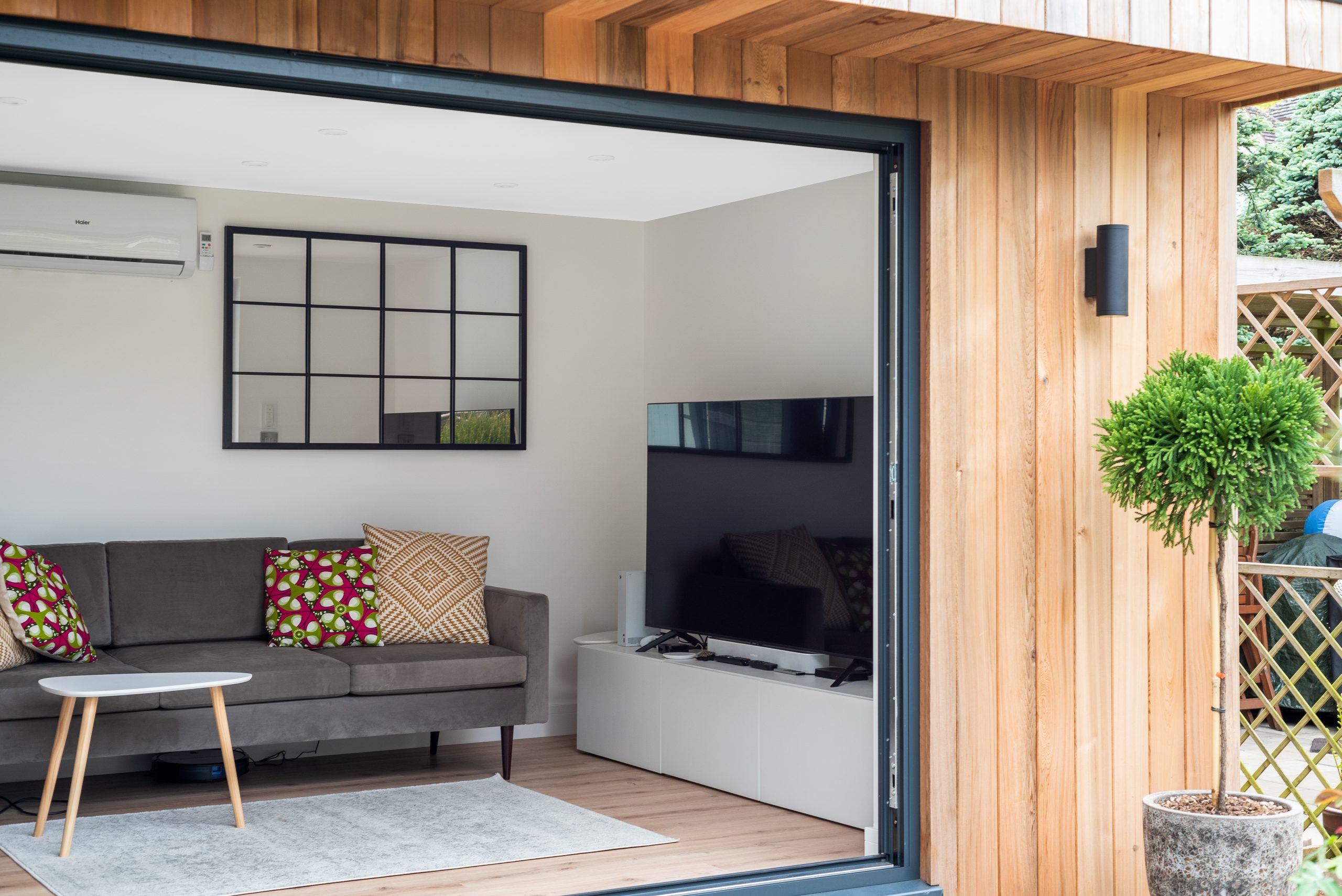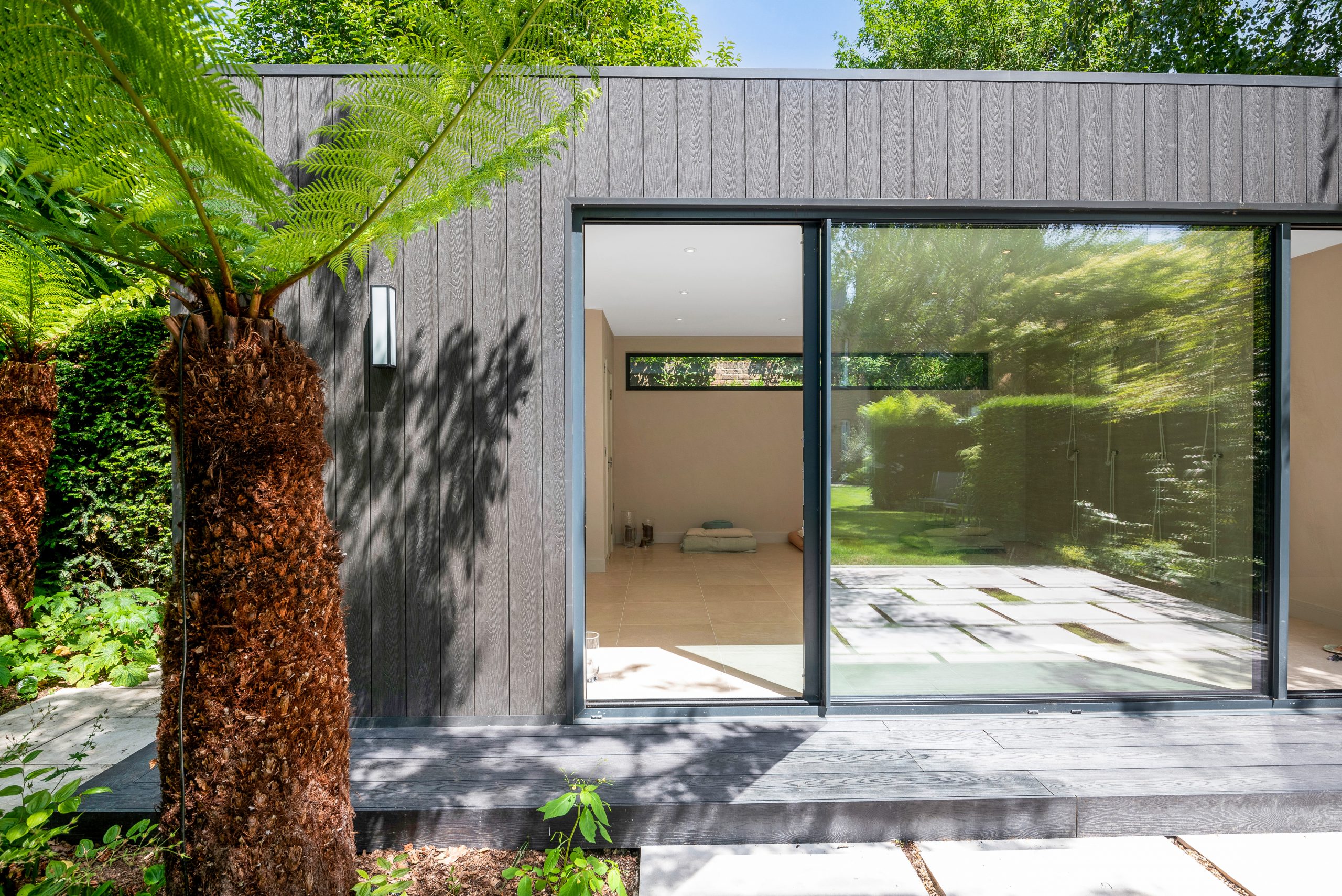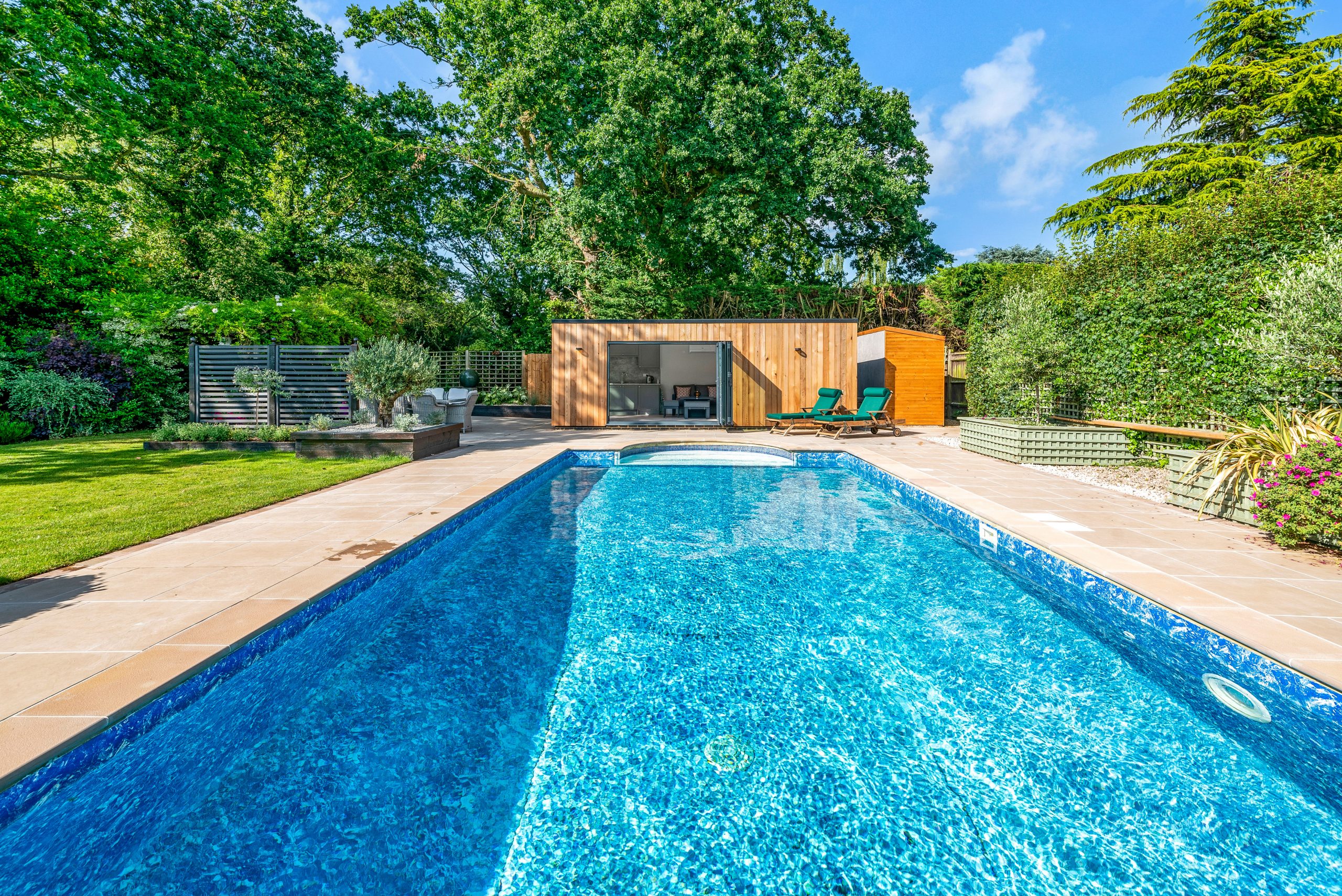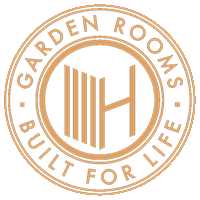Structural Insulated Panels Vs. Steel Frames
Structural Insulated Panels (SIPs) vs. Steel Frame Systems – what’s the best construction system?
When it comes to constructing garden room buildings, two heavyweight contenders have been dominating the construction industry: SIP (Structural Insulated Panel) systems and steel frame systems. Each construction method has advantages and disadvantages for garden rooms, but we will explore the benefits of using SIP panel systems over steel frame systems.



1. Superior Insulation and Minimised Thermal Bridging
One of the most significant advantages of SIP panel systems is their exceptional insulation properties. SIPs consist of two layers of oriented strand board (OSB) with a thick layer of insulation sandwiched between them. This design creates an airtight seal that minimises heat transfer, resulting in impressive energy efficiency. Steel frames transfer heat 400 times more than timber, creating thermal bridging, which requires more insulation over the steel, creating thicker walls and less efficient space. SIPs avoid thermal bridging and provide consistent and superior insulation throughout the building envelope. This reduces heating and cooling costs, creating long-term savings for any garden room owner.
2. Rapid Garden Room Construction
Time is money in the construction industry, and SIP panel systems offer a distinct advantage in terms of speed. SIPs are pre-cut, pre-insulated and designed off-site, allowing for quick and easy assembly on-site (BASF studies estimate labour savings of up to 55%). This streamlined construction process significantly reduces labour and material costs while accelerating the construction timeline. In contrast, steel frame systems typically involve more complex on-site fabrication and require insulating on-site, which can lead to delays for your garden room and increased project expenses.
3. Eco-Friendly Building Methods
SIP panel systems are a greener choice for constructing a garden room. The manufacturing process of SIPs produces minimal waste, and the materials used are sourced from sustainable forests, which reduces global CO2 levels. The timber used in SIPs is PEFC-certified. This means that the wood is from heavily monitored sustainable forestry, and each piece of timber in the structure can be traced back to its sustainable source. Additionally, the superior insulation provided by SIPs reduces the garden room’s energy consumption, decreasing its carbon footprint over its lifetime.
On the other hand, steel frame systems are not a ‘sustainable’ building material. It cannot be grown and does not come from a sustainable source; unlike timber, it is not a natural resource. Steel is incredibly energy-intensive to produce. It requires six times more energy than timber and leaves a much greater carbon footprint. Steel frame systems are significantly less environmentally friendly than SIPS systems.
4. Strength and Durability
While steel is renowned for its strength, SIPs offer impressive structural stability. SIPs are 7x stronger than traditional timber frames and 3x stronger than brick and block. The composite nature of SIPs, with the foam insulation core tightly bonded between OSB layers, creates a robust and rigid building envelope. SIPs are also highly resistant to moisture and pests, ensuring the garden room’s longevity.
5. Design Flexibility
SIP panel systems are incredibly versatile when it comes to architectural design. They can be used for various building types, from residential homes to commercial structures and garden rooms. They can easily accommodate complex designs and architectural features. SIPs can be customised to meet specific design requirements, making them an excellent choice for those looking to create unique, energy-efficient garden rooms. Steel frame systems, while sturdy, have limitations in terms of design flexibility and require additional materials to achieve specific design elements.
In the battle of construction methods, SIP panel systems emerge as a compelling choice for those seeking cost-effective, eco-friendly, energy-efficient, and rapidly constructed garden rooms . Their superior insulation properties, durability, design flexibility, and minimal environmental impact make them a stronger competitor against steel frame systems. While steel frames certainly have their place in construction, SIPs offer numerous benefits that should be noticed in today’s fast-paced and environmentally conscious building industry. As technology advances, SIP panel systems will likely become an even more attractive option for builders and property owners seeking efficient and sustainable construction solutions.
At Hawksbeck we are proud to design and construct all our garden room buildings with SIP panel systems. Speak to a member of the team for further details or questions regarding our construction methods.

